Pu-erh tea is a unique and revered type of fermented tea. With its rich history and distinctive flavor, it stands apart from other teas. Known for its deep, earthy taste, Pu-erh tea has captivated tea enthusiasts for centuries.
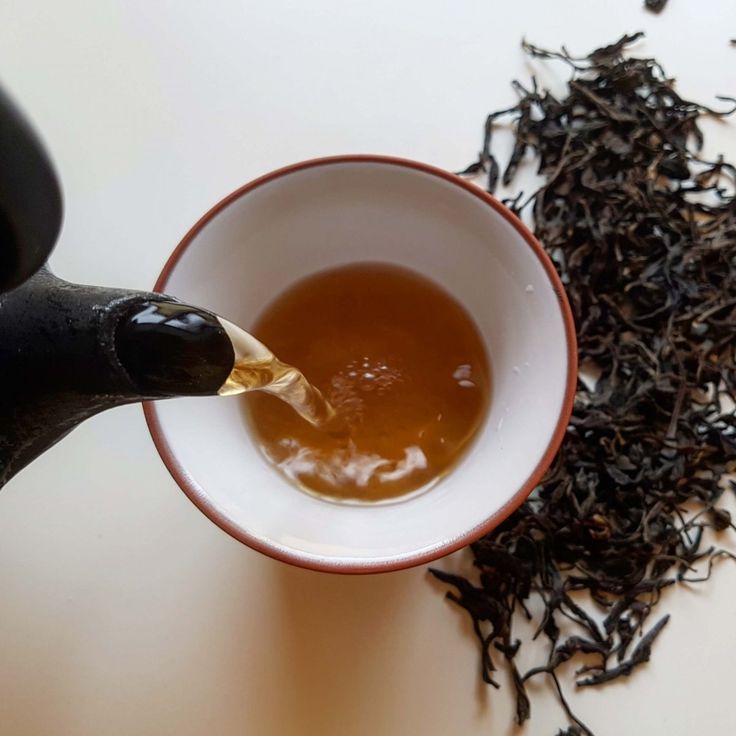
What is Pu-erh Tea?
Pu-erh tea originates from the Yunnan province of China. It is crafted from the leaves of the Camellia sinensis plant, the same plant used for green, black, and oolong teas. What sets Pu-erh apart is its unique fermentation and aging process. This distinctive method not only enhances the flavor but also contributes to numerous health benefits.
The flavor profile of Pu-erh tea is strong, smooth, and often earthy. This makes it a favorite among tea enthusiasts. Pu-erh is available in two primary types: raw (sheng) and ripe (shou). Raw Pu-erh is allowed to age naturally over time, developing complex flavors that evolve with each passing year. On the other hand, ripe Pu-erh undergoes a controlled artificial fermentation process, creating a rich and mellow flavor profile that can be enjoyed right away.
Both varieties are highly regarded for their rich taste and depth. They are often sought after by collectors and casual drinkers alike. Whether you prefer the vibrant freshness of raw Pu-erh or the deep richness of ripe Pu-erh, there is a unique experience awaiting every tea lover.
History and Origin
The history of Pu-erh tea dates back more than 1,000 years. Its name comes from Pu’er City in Yunnan, which was a significant trading hub during ancient times. Farmers in this region first created fermented tea as a means to preserve tea leaves for long-distance transport and storage. This innovative approach ensured that the tea remained fresh during travel.
Pu-erh quickly gained popularity along ancient tea trade routes, most notably the Tea-Horse Road. This route facilitated trade between China and other regions, allowing Pu-erh to reach a wider audience. To make transportation easier, the tea was traditionally pressed into cakes or bricks. This method not only saved space but also protected the tea leaves.
Over the centuries, fermented tea became highly valued for its longevity and unique aging qualities. Many tea enthusiasts appreciate that it improves with age, developing complex flavors and aromas over time. Today, fermented tea stands as a symbol of tradition and craftsmanship in the tea world. Its rich history continues to captivate tea drinkers and collectors alike, celebrating a time-honored practice that endures through generations.
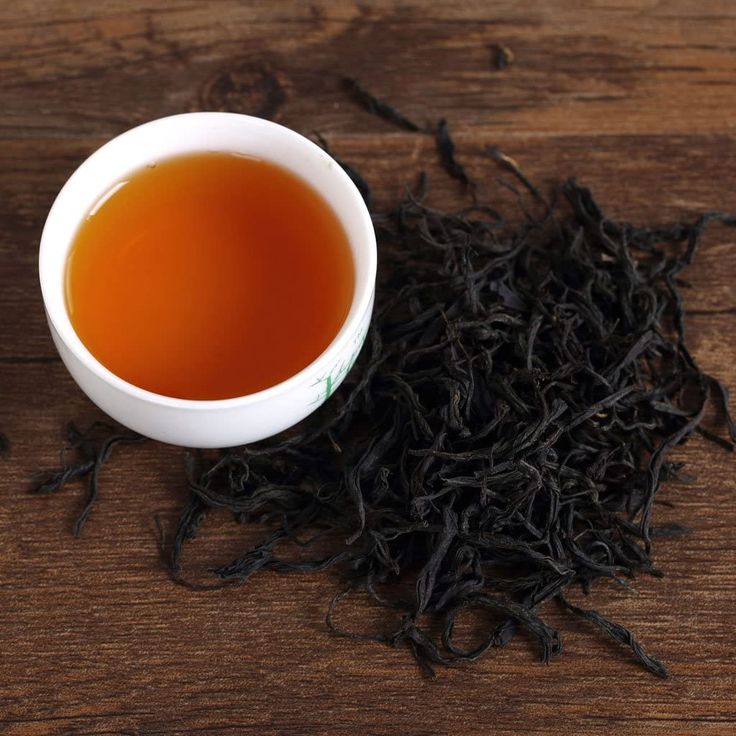
Nutritional Composition of Fermented Tea
Pu-erh tea has a unique nutritional profile, largely due to its fermentation process. This distinctive composition offers a range of amazing health benefits that appeal to many tea drinkers.
Key Antioxidants and Compounds
Pu-erh tea is rich in antioxidants, particularly catechins and polyphenols. These powerful compounds work to combat harmful free radicals in the body. By reducing oxidative stress, they improve overall health and well-being. Furthermore, fermented tea contains statins, which are known to help lower bad cholesterol levels. This makes it beneficial for cardiovascular health. The tea also provides alkaloids, which can boost energy and enhance mental alertness. Additionally, essential minerals such as manganese and potassium contribute to bone health and muscle function. Notably, the fermentation process produces probiotics that aid gut health, strengthening the digestive system.
Unique Fermentation Process
The fermentation process is what truly defines fermented tea’s character. It alters the tea’s chemical and physical properties while producing unique microbial metabolites. These beneficial compounds enrich the tea with probiotics, enhancing digestive health and overall well-being. Moreover, fermentation increases the bioavailability of nutrients, meaning the body can absorb them more easily. Unlike other types of tea, the aging process further adds depth and complexity to Pu-erh’s flavor. This not only enhances the tea’s taste but also boosts its health benefits over time. Overall, the nutritional composition and unique characteristics of fermented tea make it a remarkable choice for health-conscious individuals.
Health Benefits of Drinking Fermented Tea
Pu-erh tea provides numerous health benefits, making it a valuable addition to your daily routine. Its unique composition, created through fermentation, offers advantages for digestion, heart health, weight management, mental clarity, and detoxification.
Promotes Digestive Health
One of the key benefits of fermented tea is its ability to enhance digestion. The probiotics present in the tea help balance gut bacteria, supporting a healthy digestive system. This balance reduces bloating and discomfort while improving nutrient absorption from food. Additionally, the fermented compounds in fermented tea aid in the breakdown of fats and proteins, making it easier for the body to digest various foods effectively.
Supports Weight Management
Pu-erh tea can also be beneficial for those looking to manage their weight. It has been shown to boost metabolism, allowing the body to burn fat more efficiently. The tea helps reduce cholesterol levels and prevents the storage of excess fat. When combined with a balanced diet and regular exercise, regular consumption of fermented tea can support effective weight control and enhance overall fitness efforts.
Improves Heart Health
Another significant benefit is its positive impact on heart health. Pu-erh tea is rich in antioxidants that help lower bad cholesterol levels and improve cardiovascular health. The statins found in the tea promote better blood flow and reduce the risks associated with heart disease. By drinking fermented tea regularly, individuals can strengthen their heart function and promote overall cardiovascular wellness.
Boosts Mental Clarity and Focus
Pu-erh tea is also known for its ability to boost mental clarity and focus. It contains alkaloids that enhance alertness and concentration. The caffeine content provides sustained energy without the jitters associated with some other caffeinated beverages. Additionally, the calming properties of Pu-erh tea support mental clarity and help reduce stress levels.
Enhances Liver Detoxification
Finally, Pu-erh tea aids in detoxifying the liver. It promotes the removal of harmful toxins while the antioxidants present protect liver cells from damage. By incorporating Pu-erh tea into your routine, you can support liver health and overall detoxification, making it a valuable addition to a health-conscious lifestyle.
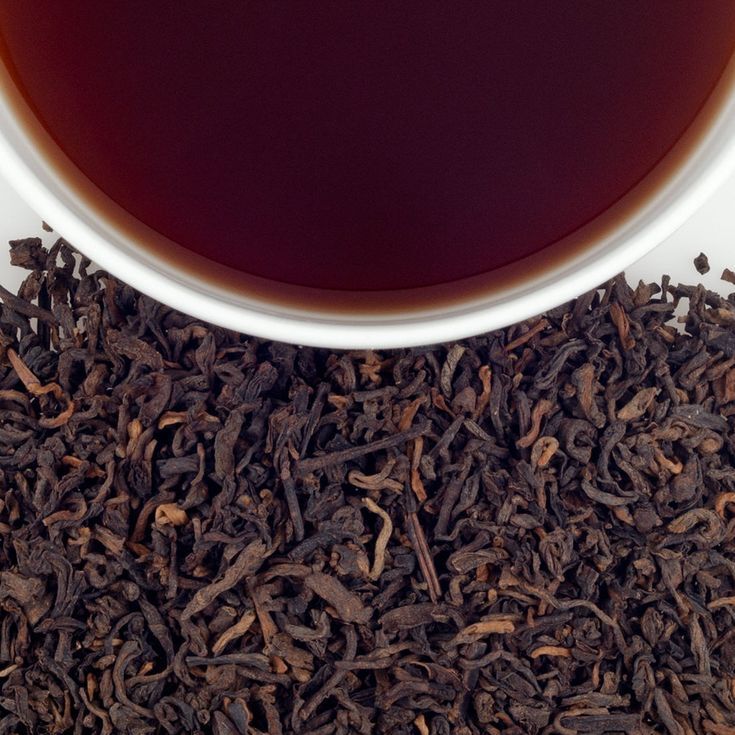
Comparing Pu-erh Tea to Other Teas
Pu-erh tea stands out among other types of tea due to its unique fermentation process and impressive health benefits. Its distinct characteristics make it a favorite among tea enthusiasts and health-conscious individuals alike.
Differences in Fermentation and Taste
Pu-erh tea undergoes a fermentation process that is unlike that of green, black, or white teas. This unique process not only creates beneficial probiotics but also develops deep, complex flavors. Raw fermented tea presents a fresh and vibrant taste, while ripe Pu-erh is known for its earthy richness. Most other teas tend to be light and floral, but Pu-erh offers a bold flavor profile that is distinctly different. The aging process of Pu-erh tea enhances its taste over time, making it unique, as other teas are typically consumed fresh. The fermentation adds layers of complexity that set Pu-erh apart from standard teas.
Unique Health Advantages
Pu-erh tea also provides health benefits that are not commonly found in many other types of tea. Its probiotics are particularly effective in improving gut health, surpassing the benefits offered by most teas. Additionally, the statins in fermented tea help lower bad cholesterol levels, a benefit that is not prominently featured in green or black teas. Pu-erh is effective in promoting liver detoxification, enhancing its cleansing properties. Moreover, the fat-burning compounds in Pu-erh make it a strong ally for weight management. Overall, compared to other teas, Pu-erh offers broader health advantages, including support for digestion and heart health, making it a valuable addition to any tea lover’s collection.
How to Brew Fermented Tea
Brewing Pu-erh tea requires attention to detail for the best flavor and experience. The preparation enhances its unique taste and health benefits.
Traditional Methods of Preparation
- Select the Right Utensils: Use a gaiwan or a teapot for brewing fermented tea.
- Break Tea Cakes or Bricks: Use a tea pick to loosen compressed fermented tea gently.
- Rinse the Leaves: Quickly rinse the tea leaves with hot water to reduce impurities and wake the flavor.
- Steep the Tea: Add the tea leaves to your pot. Pour water heated to around 90-95°C.
- Brewing Time: Let the tea steep for 20-30 seconds for the first infusion. Adjust for subsequent brews.
- Multiple Infusions: Pu-erh tea can be brewed multiple times. Each infusion reveals new layers of flavor.
Tips for Optimal Flavor
- Choose High-Quality Tea: Opt for authentic Pu-erh tea from Yunnan for premium taste.
- Use Fresh Water: Always use filtered or spring water for brewing.
- Control Water Temperature: Avoid boiling water; slightly cooled water is ideal for maintaining flavor.
- Adjust Leaf Quantity: Generally, use 5-7 grams of tea for a session. Modify based on personal taste.
- Experiment with Steeping Time: Shorter steeps give lighter flavor; longer steeps intensify richness.
- Use Proper Storage: Store tea in a cool, dry place to preserve freshness and flavor.
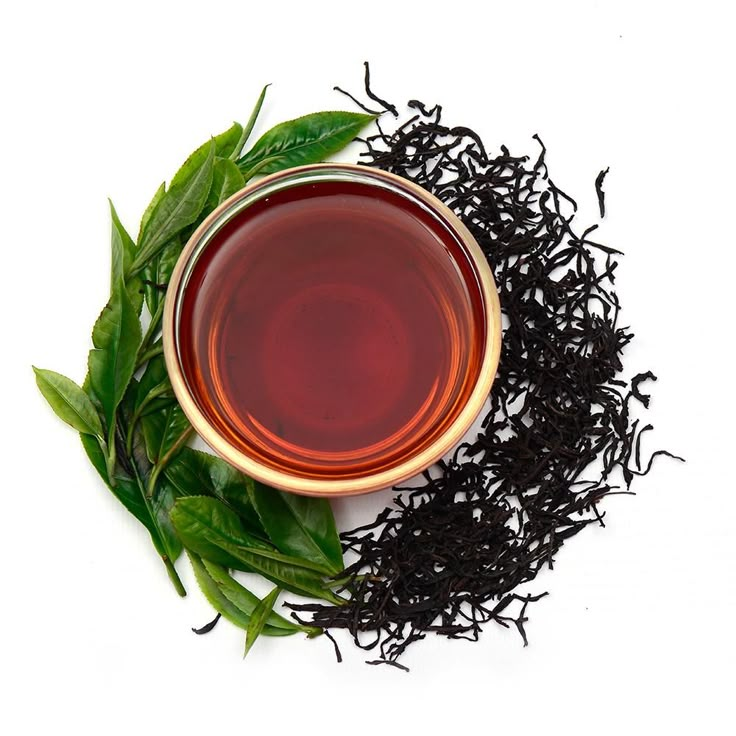
Choosing and Storing Pu-erh Tea
Selecting and storing Pu-erh tea correctly enhances its flavor and maintains its benefits.
Which Types to Select for Maximum Benefits
- Raw (Sheng) vs. Ripe (Shou): Decide between raw or ripe Pu-erh based on preference. Raw Pu-erh offers fresh, floral notes and stronger aging potential. Ripe Pu-erh provides earthy, mellow flavors and a smooth texture.
- Age of the Tea: Older Pu-erh teas are prized for their richer complexities. Younger Pu-erh teas offer lighter flavors and are less expensive.
- Source Verification: Opt for tea from trusted sources or directly from Yunnan. Authentic Pu-erh ensures higher quality.
- Type of Compression: Choose between tea cakes, bricks, or loose leaves. Cakes and bricks are easier to store, while loose leaf offers convenience.
- Personal Preference: Sample different varieties to identify a taste profile that suits you best.
Proper Storage Techniques
- Avoid Light and Humidity: Store Pu-erh in a cool, dark, and dry place. Heat and sunlight degrade quality.
- Maintain Good Airflow: Allow the tea to breathe by using breathable packaging like paper or bamboo wrappers. Avoid airtight containers.
- Separate Strong Aromas: Keep Pu-erh away from strong odors. It easily absorbs smells, which can affect its flavor.
- Ideal Storage Conditions: Aim for a temperature of 20-30°C with moderate humidity. Extreme conditions can harm the tea.
- Regular Inspection: Check Pu-erh periodically for mold or strong, unpleasant odors. Proper care ensures its prolonged quality.
- Long-term Aging: Store raw Pu-erh for years to enhance its character. Keep ripe Pu-erh for shorter terms to maintain its smoothness.
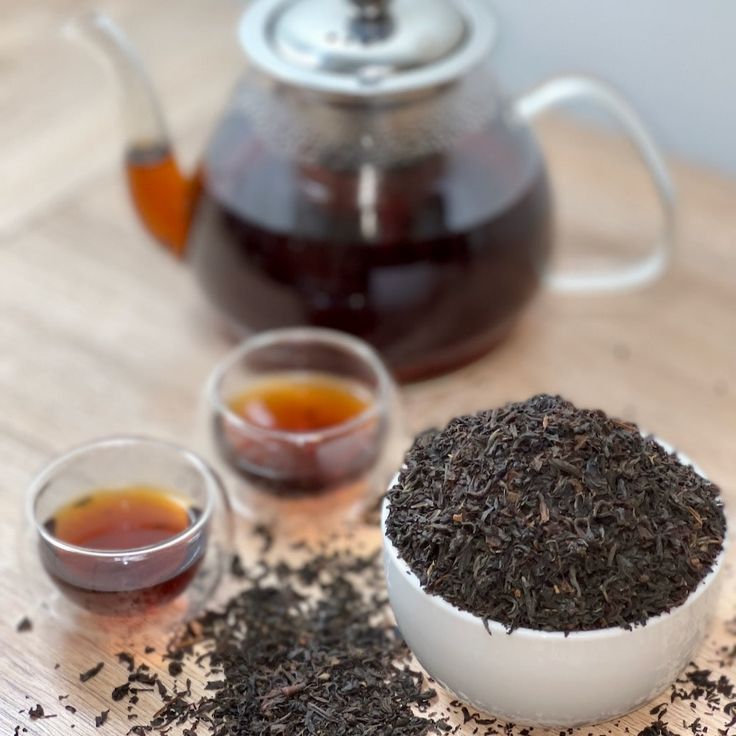
Potential Side Effects and Precautions
Pu-erh tea is highly valued for its health benefits, but some precautions are necessary. While it can be part of a balanced diet, excessive consumption or certain health conditions may lead to unwanted effects. Awareness of these factors ensures safe enjoyment of the tea.
Who Should Avoid Pu-erh Tea?
- Pregnant and Breastfeeding Women: Pregnant and breastfeeding women should avoid fermented tea because it contains caffeine. Caffeine may disrupt sleep patterns and increase restlessness in infants.
- People Sensitive to Caffeine: Those who are sensitive to caffeine should steer clear of fermented tea. Consuming it may lead to insomnia, jitters, or an increased heart rate, causing discomfort.
- Individuals with Stomach Issues: If you have stomach issues, you should avoid fermented tea. Its acidic nature can upset sensitive stomachs and may worsen conditions like ulcers with prolonged use.
- Those with Kidney Conditions: Individuals with kidney conditions need to exercise caution before drinking fermented tea. Certain compounds in the tea may burden kidney function and exacerbate existing issues.
- People on Medication: Pu-erh tea may interact negatively with medications, particularly anticoagulants and stimulants.
Recommended Consumption Levels
- Daily Amount: Limit your consumption of Pu-erh tea to 1–2 cups daily. This helps avoid excessive intake of caffeine and acidity, which can lead to discomfort.
- Time of Consumption: It is best to drink fermented tea in the morning or early afternoon. Consuming it later in the day may interfere with your sleep patterns due to its caffeine content.
- Observe Body Reactions: Pay attention to how your body responds after drinking fermented tea. Watch for side effects, such as changes in heart rate or any digestive discomfort.
- Balanced Diet: Combine Pu-erh tea with a balanced diet rich in nutrients. This can enhance the tea’s health benefits and minimize any potential risks.
- Hydration: By following these guidelines, you can enjoy the benefits of fermented tea while safeguarding your health.
Ensure you drink plenty of water alongside Pu-erh tea. Staying hydrated supports digestion and overall health.